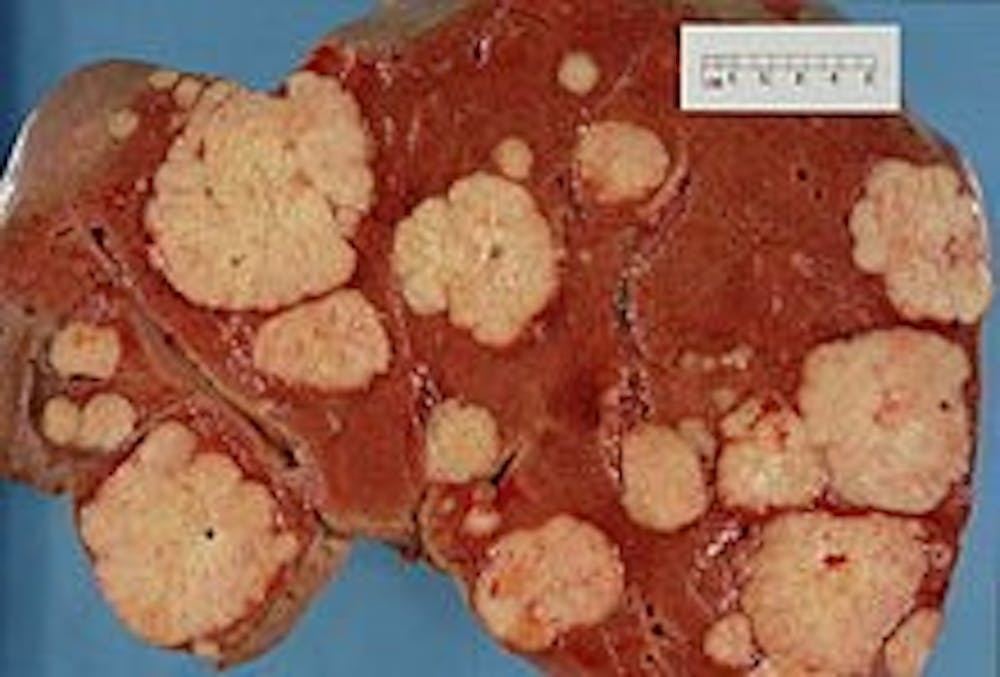A recent clinical study conducted by the charity Pancreatic Cancer UK showed that a combination of two chemotherapy drugs helped to extend survival time for pancreatic cancer patients. A separate research study showed an increase in survival rate for patients suffering from lung cancer. Pancreatic cancer has the worst survival rate among the commonest forms of cancer, while lung cancer has the second worst survival rate.
Out of the 10,000 people who are diagnosed with pancreatic cancer each year in the UK, 80 percent of patients are diagnosed at an advanced stage, which explains its lethal nature. During the early stages, when the pancreatic tumor would be treatable by surgical removal, there are usually no symptoms. In the UK, only about 800 patients benefit from surgery. Surgery frequently leaves behind microscopic aggressive tumor cells that cause a recurrence of cancer.
About 95 percent of people with pancreatic cancer die from it, usually within the first year after diagnosis. Pancreatic cancer has a one percent survival rate for ten or more years after diagnosis. Furthermore, the survival rate for the disease has barely risen in the past four decades.
“These results are a monumental leap forward in pancreatic cancer treatment. We believe this could herald a true step change in the treatment of this tough cancer, offering substantially more patients who have had surgery the chance to live for longer and, crucially, without significant added side-effects,” said Leanne Reynolds, head of research at Pancreatic Cancer UK.
The study was carried out by European Study Group for Pancreatic Cancer (ESPAC-04), and included a total of 732 patients from six different countries: England, Scotland, Wales, Germany, France and Sweden. The two drugs that the researchers paired to give to the subjects were gemcitabine and capecitabine. Both drugs are standard chemotherapy drugs given to pancreatic cancer patients.
The study recorded that 16.3 percent of subjects who received just gemcitabine survived for at least five years. On the other hand, 28.8 percent of subjects who were given both gemcitabine and capecitabine survived for the same amount of time.
“This is one of the biggest ever breakthroughs prolonging survival for pancreatic cancer patients,” John Neoptolemos of Liverpool University, who led the team of researchers, said. “When this combination becomes the new standard of care it will give many patients living with the disease valuable months and even years.”
On the other hand, a research study published by the United Kingdom National Health Service showed that the number of people surviving for at least a year after diagnosis of lung cancer rose from 31 percent to 38 percent from the years 2010 to 2015. The study was done by compiling information from NHS’s audit of the quality of care for patients. The records of 43,000 people diagnosed with lung cancer were analyzed.
Ian Woolhouse, the audit’s Senior Clinical Lead and the rest of his team noted that the progress was likely due to how lung cancer is treated. For example in 2015, 60 percent of lung cancer patients received some form of anti-cancer treatment, a 20 percent increase from 2010.
Woolhouse added that even with this progress, improvement in survival rates should continue to increase in the future. For example though the nationwide target is 90 percent, only 57 percent of patients are seen by a specialist lung cancer nurse.
“We are pleased to see this encouraging increase in patient survival. However, there is much still to do to ensure that lung cancer patients are diagnosed as early as possible and are able to access best practice treatment and care,” Dr. Jesme Fox, medical director of the Roy Castle Lung Cancer Foundation said.

















